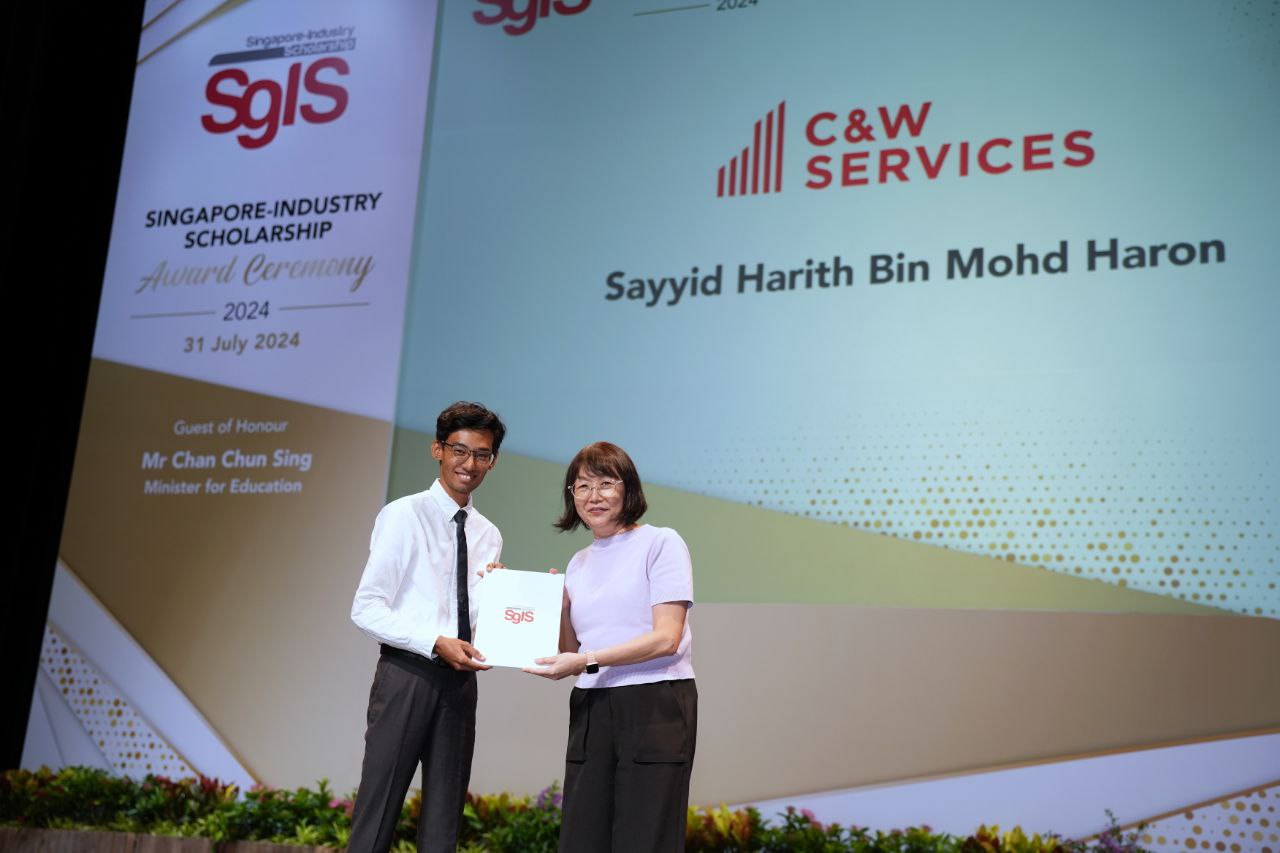Transforming Aspirations Into Reality Through the Built Environment Sector

Sayyid Harith Bin Mohd Haron (pictured above) has always been driven by a strong desire to contribute to Singapore’s growth and future. When he discovered the Built Environment Scholarship offered under the Singapore-Industry Scholarship (SgIS), he saw it as the perfect opportunity to turn his aspirations into reality.
Drawn to the Built Environment (BE) sector, Sayyid aims to work on initiatives that improve the lives of Singaporeans, such as creating people-centric housing estates, designing green spaces that foster community engagement, and implementing smart technologies to enhance urban mobility and sustainability.
Navigating New Frontiers
Sayyid’s interest in facilities management began during his polytechnic years, where he pursued a Diploma in Aviation Management at Temasek Polytechnic. His hands-on experience managing aviation facilities, such as airports and airfields, provided a strong foundation in operational efficiency and facilities management.
“I wanted to expand my expertise beyond aviation to explore the diverse opportunities in managing facilities across various industries,” Sayyid explained.
This ambition led him to pursue Project and Facilities Management (PFM) at the National University of Singapore (NUS). At NUS, Sayyid quickly realised that the skills he gained in asset management, safety compliance, and stakeholder coordination during his polytechnic days were highly transferable to his new field. The PFM curriculum broadened his perspective and skillset, preparing him to contribute to projects that enhance Singapore’s built environment.

Sayyid at the SgIS Award Ceremony 2024
A Global Lens on Urbanism
During his undergraduate studies at NUS, Sayyid seized opportunities that enriched his academic journey and solidified his career aspirations. One standout experience was a Summer Studio Exchange on ‘Comparative Urbanism’ at the University of British Columbia (UBC) in Vancouver, Canada. The programme, co-organised by the NUS Department of Architecture, NUS Cities and the UBC Urban Studies Department, included field trips, studio sessions, and collaborative projects that provided valuable insights into sustainable urban planning, cross-cultural collaboration, and innovative solutions to urban challenges.
Sayyid envisions applying his learning to Singapore’s urban development, particularly in projects that integrate blue-green infrastructure, enhance community spaces, and improve urban resilience.

Sayyid during his Summer Studio Exchange in Vancouver, Canada
Looking Ahead
Upon graduating in a few months, Sayyid will join his sponsoring organisation, C&W Services Singapore.
C&W Services, the facilities and engineering arm of Cushman & Wakefield, brings over 30 years of expertise in facilities management, engineering solutions, energy management strategies, and innovative facilities management technology. As a fully integrated facilities management company, it specialises in delivering end-to-end facilities services and property management solutions. Sayyid is excited to contribute to diverse, large-scale projects that will allow him to apply and expand his knowledge in areas such as facilities operations, township management, and sustainable building practices.
“The BE Scholarship aligns perfectly with my aspirations, offering not only financial support but also opportunities for professional growth and engagement with industry leaders. I also look forward to networking with senior management and gaining rotational exposure across the company’s various functions, which will provide me with a comprehensive understanding of its operations,” he said.
Looking to the future, Sayyid is enthusiastic about the transformative potential of facilities management in Singapore, particularly with the integration of robotics, automation, and data-driven technologies like smart building management systems. He hopes to leverage these technologies in his work at C&W Services to contribute to projects that enhance urban living and strengthen Singapore’s infrastructure for sustainable development.
For students interested in applying for the BE Scholarship to work in the built environment industry, Sayyid advises seeking internships or part-time roles with construction firms, consultancy firms, or government agencies to gain hands-on experience and problem-solving skills that will be invaluable in the real world. “Networking is equally important—attend industry events, connect with alumni, and engage with mentors or lecturers who can provide guidance on navigating challenges like urban space constraints and integrating smart technologies,” he added.
Click here to find out more about the SgIS Sponsoring Organisations from the Built Environment sector.
This article was originally published in BrightSparks on 26 February 2025 and is republished here with permission.

